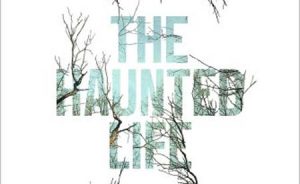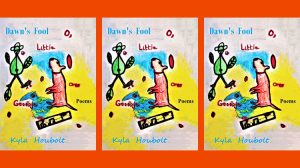Bad Baby by Abigail Welhouse / Dancing Girl Press / $7 / 2015
 This spiky-funny little book of poems is by a young Brooklyn-based poet named Abigail Welhouse, via a charming Chicago-based chapbook publisher called Dancing Girl Press; I picked it up, on a whim, at my local indie, natch, and glad I am that I did. Bad Baby is, quite simply, a knockout: a potent but light-footed stew of attitude, humor, surrealist whimsy, and off-kilter lyricism.
This spiky-funny little book of poems is by a young Brooklyn-based poet named Abigail Welhouse, via a charming Chicago-based chapbook publisher called Dancing Girl Press; I picked it up, on a whim, at my local indie, natch, and glad I am that I did. Bad Baby is, quite simply, a knockout: a potent but light-footed stew of attitude, humor, surrealist whimsy, and off-kilter lyricism.
A useful conception, to my mind, is the idea that poetry is not so much a system for the delivery of messages, or aesthetic truths, per se, as it is a mechanism for the refraction or projection of a sensibility. The sensibility behind Bad Baby is highly distinctive. Not for Welhouse mopey displays of personal distress or emotional exhibitionism: the poems here are like little quick-moving time bombs of bristling ontological uncertainty. A poem called “Q & A” starts out by playing with the conventions of fairy tales, and ends with “Question: Are you a siren or a sailor? / Answer: I sing to myself, then die”; another one, called “Rituals,” is full of nonsensical commands like “Give tiny hats to babies.” Much of the collection reads like straightforward texts, myths, realia, that have been scrambled by imperfect translation: “a man pays more for shampoo louder,” says “Scent of a Man,” earnestly. This is pleasing and disorienting in equal measure; Welhouse clearly has the kind of mind that regards words as a playground of near-infinite possibility.
And the results are often quite funny. Humor in poetry is a risky affair — it brings to mind “light” verse, Edward Lear, all kinds of painful slop — but in Welhouse’s hands it is more a kind of cosmic bemusement tied to a keen sense of language, executed via hairpin turns in the line that feel almost as though they were as surprising to the poet as to the reader. “I always end in death,” the poet intones, “but whatever / doesn’t everyone?” Incantations go awry: “O fancy face gunk / save me from myself and my city”; “I don’t want to relax / I just want to huff ocean.” This crossed-wires lunacy is an excellent way of keeping the reader on his toes; it also makes the sudden, stabbing moments of unadorned lyricism even more affecting. “We are the city / hushed, quiet now,” goes the end of the lovely, yearning “Return from Suburbia” — “we are the city so never look down.”





Leave a Reply